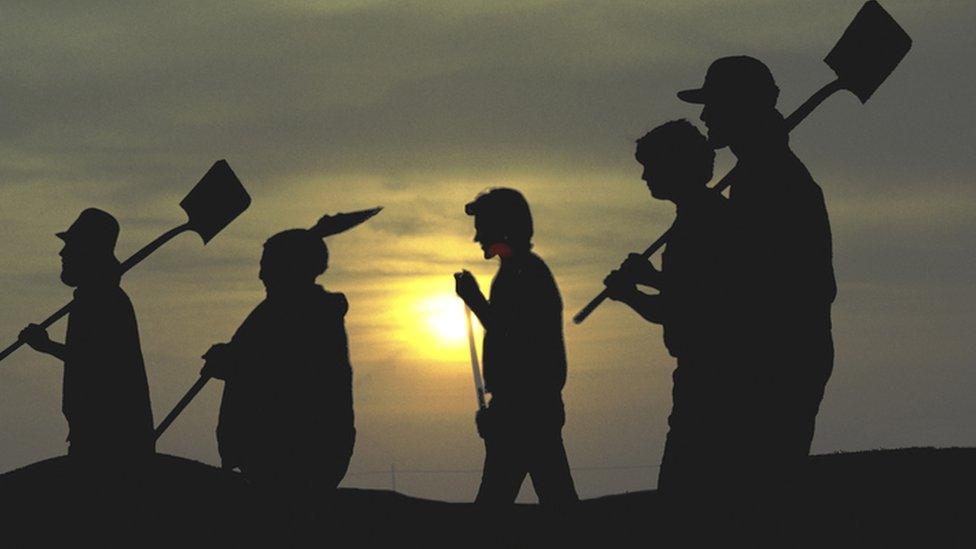Economy in a hole? Get digging
- Published

Alex Salmond used to be fond of "shovel ready projects". The former premier called for extra capital spending, so that the wielders of shovels could start digging.
His successor doesn't use the imagery of the muscular, barely-skilled construction worker. Perhaps she sees capital investment as a subtler, more skilled line of work.
But she's making the same arguments, with a decision to allocate an "additional" £100m to projects in this financial year.
The first £5m has been allocated to a project to expand facilities at the Golden Jubilee Hospital in Clydebank. This wasn't about spadework, but laboratory white coats.
But hang on. Isn't this the Scottish government that doesn't have the powers to conjure money out of more borrowing, lacking the financial levers it says it needs to help the economy?
Yes, it is. The very same. So where has this "additional" £100m come from?
The answer is that it's come from last year. It was capital funding in the 2015-16 Scottish government budget which went unspent.
In June, Finance Secretary Derek Mackay made an announcement to MSPs that a total of £155m was not spent.

Now, the government's opponents sometimes make much of the "failure" to spend money, just as the SNP did when the roles were reversed.
But given the many uncertainties of how spending is profiled, and particularly on lumpy bits of capital expenditure, that's not a bad result from £30.5bn of annual budget.
And it doesn't go unspent. Nor does it return to the Treasury in London. It gets carried over to the following year - this financial year, 2016-17.
Economic impact
Some of that £155m has strings attached, in that it was allocated by the Treasury in London on condition that it gets subsequently clawed back.
But £115m of it did not have strings. And the £100m comes from that. Expect a further £15m announcement in due course, as well as a series of announcements as the £100m pot gets allocated to specific projects.
They're being weighed up according to their job-creating capacity and geographic spread. Buying lots more hospital laboratory equipment from foreign manufacturers may be easy, quick and desirable, but may not tick the right boxes for economic impact.
It's also easy to find capital projects in search of funding. It's much more difficult, at short notice, to find ones that are ready to start, shovels and all, in the next few months.
The kind of projects that could benefit are in road improvements, flood defences and government building renovation, but on a small-ish scale if they're to be completed by next April.
We can expect some spending plans to roll over into 2017-18, most of it from this year's £3.5bn capital budget.
And when that happens, we can expect the first minister - around this time next year - to be announcing an "additional" pot of funding.
The quiet chancellor
The bigger question, as I've noted before, is whether Nicola Sturgeon and Derek Mackay are going to use the new taxation powers at their disposal from next April.
Business lobby groups have welcomed the announcement of spending, whether "additional" or delayed. But there is grumbling that business rates remain unreformed, and for some larger premises they've been surcharged. And there are calls for Air Passenger Duty, newly devolved, to be put into a rapid descent.
A bigger question still is when Philip Hammond is going to set out his approach to public spending, and whether this will include a fiscal stimulus of tax cuts and/or spending increases, in response to the economy's slowdown.
The new chancellor is not the most flamboyant of politicians. But of late, he's been more than usually quiet.